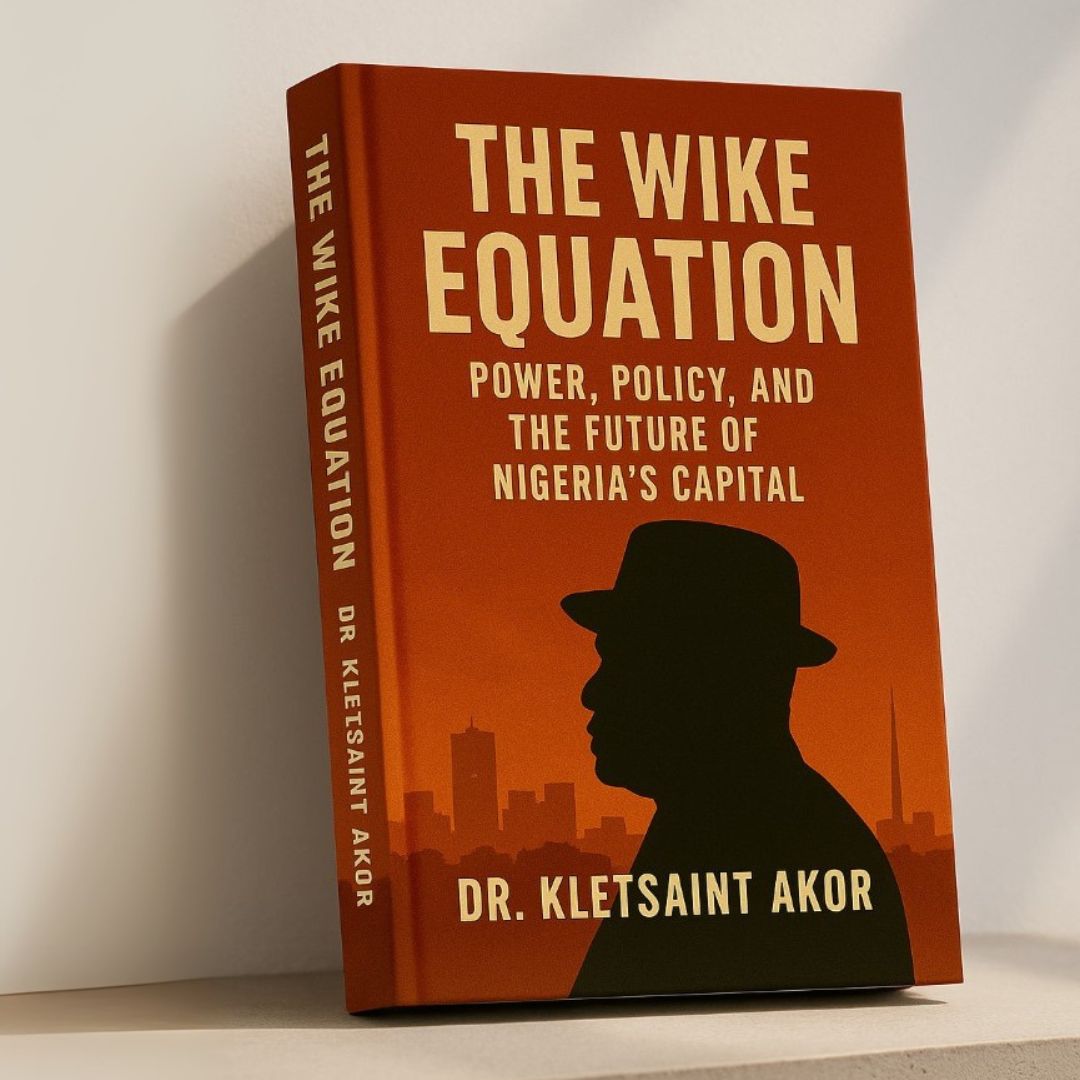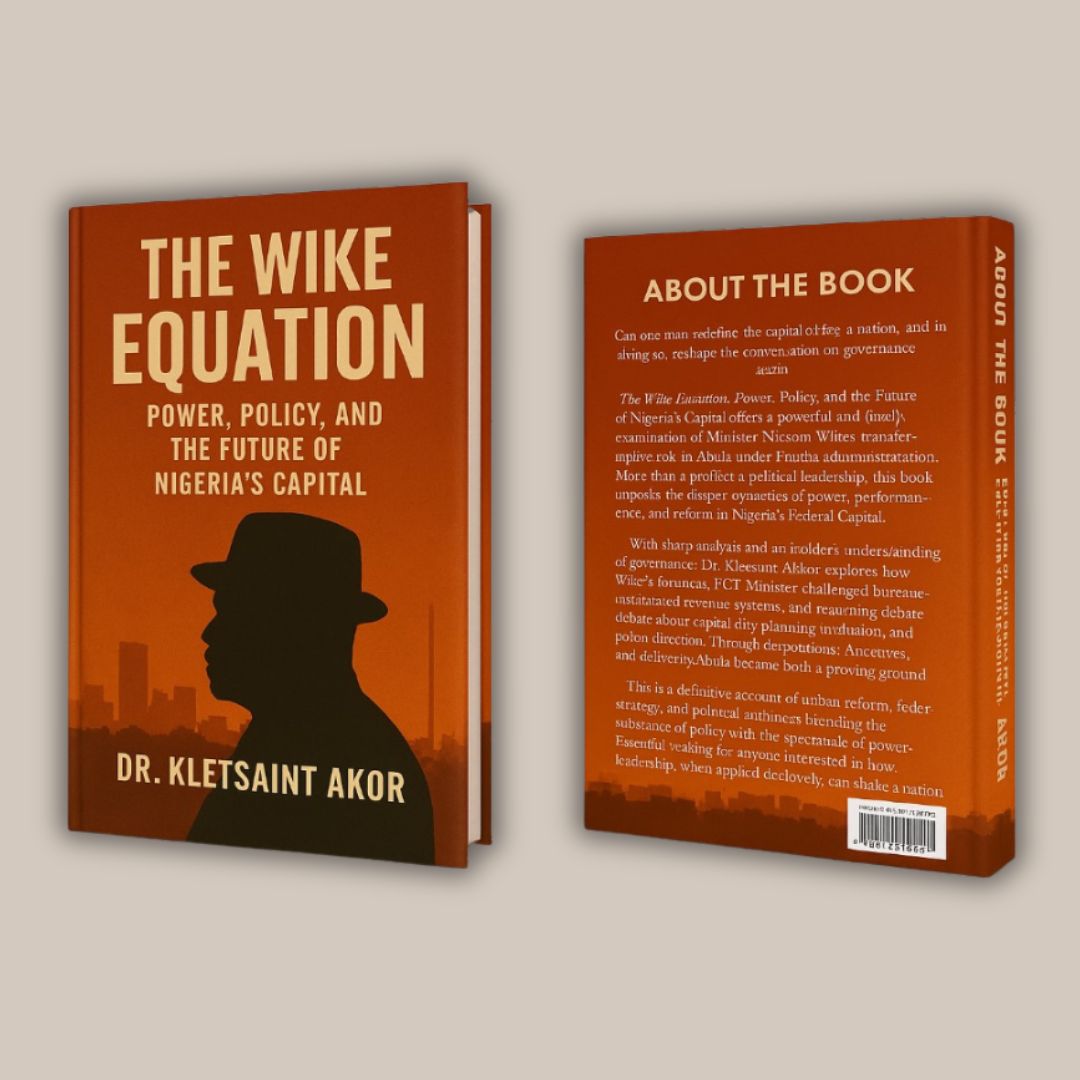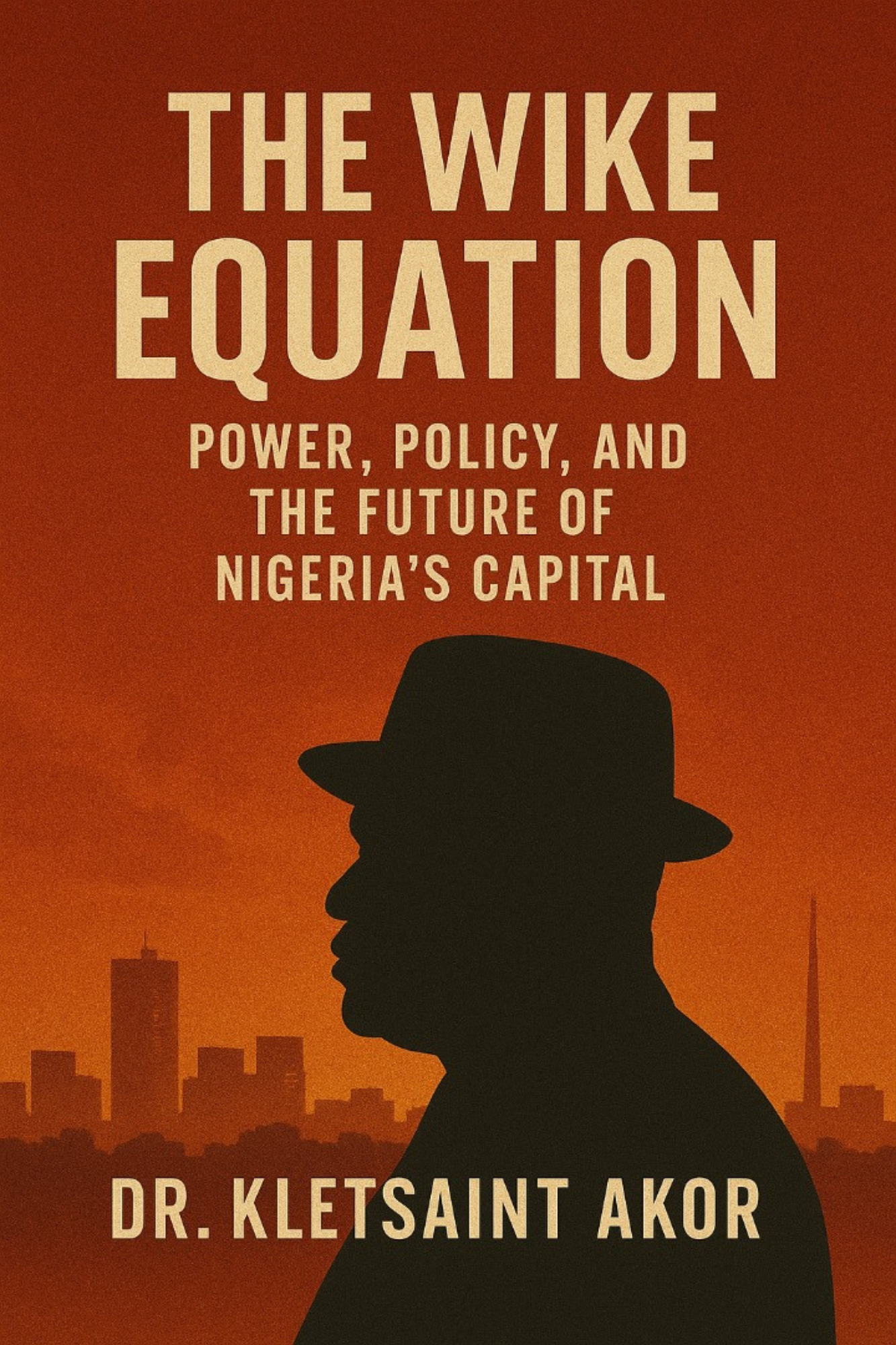The Wike Equation
Power, Policy, and the Future of Nigeria's Capital
A masterclass in disruptive governance, fiscal reform, and political spectacle.



About the Author
Dr. Kletsaint Akor is a development expert, political analyst, and prolific author. With academic credentials in Public Administration (BSc) and postgraduate qualifications (Master and PhD) in Peace and Conflict Resolution—and ongoing studies in Business Administration—he brings a cross‑disciplinary perspective to reform, governance, and institutional studies.
He is the lead contributor to the NDSG Book Chain and the author of critically acclaimed works including Democracy in Nigeria I, II & III, State of the Nation's Democracy I & II, Business Unusual, Nigeria Humanitarian Year Books, and Echoes from the Chambers.
Residing in Abuja with his family, Dr. Akor continues to consult, teach, and write at the intersection of politics and development.
Book Synopsis
The Wike Equation: Power, Policy, and the Future of Nigeria's Capital is a bold and timely chronicle of Minister Nyesom Wike's unprecedented leadership of the Federal Capital Territory (FCT) under the Tinubu administration. Blending political insight with rigorous analysis, the book explores how a figure known for political defiance has transformed Abuja's governance structure—reimagining it as a platform for fiscal reform, urban renewal, and strategic power positioning. This is not just a book about a man; it is a book about a method—a model of disruptive governance in complex times.

Chapter Excerpts
The Wike‑Tinubu Equation: A Political Trade‑off
Explore the political calculation that brought Wike into Tinubu's cabinet and the balance of power that followed.
The Renewed Hope Agenda: Tinubu's Economic Gamble
How the administration's fiscal choices align or clash with the FCT's realities.
The FCT Before Wike: A Stagnant Capital?
The paralysis and decay that set the stage for disruption.
Demolitions and Development: The Politics of Bulldozers
Rule‑of‑law symbol or public fear? Read the impacts and optics.
The Showman in the City: Wike's Governance Style
Presence, performance, and political communication in everyday administration.
Revenue or Ruin? New Tax Regimes and Land Charges
Revenue gains vs. citizen pain; what the numbers and design say.
The Wike‑Tinubu Equation: A Political Trade‑off
This chapter delves deep into the intricate political calculations that led to Nyesom Wike's appointment as Minister of the Federal Capital Territory. It examines the strategic alliance between two political heavyweights and how this partnership reshaped the power dynamics within Nigeria's political landscape. The chapter explores the mutual benefits, compromises, and the delicate balance of power that emerged from this unprecedented political arrangement.
The Renewed Hope Agenda: Tinubu's Economic Gamble
An in-depth analysis of President Tinubu's economic policies and their direct impact on the Federal Capital Territory. This chapter examines how the administration's fiscal strategies, including subsidy removal and currency reforms, created both opportunities and challenges for Abuja's development. It provides a critical assessment of policy alignment and the real-world implications for Nigeria's capital city.
The FCT Before Wike: A Stagnant Capital?
This chapter provides a comprehensive overview of Abuja's state before Wike's appointment, documenting years of administrative challenges, infrastructure decay, and governance paralysis. It sets the historical context for understanding the magnitude of transformation that followed, examining the systemic issues that had plagued Nigeria's capital and created the conditions ripe for disruption.
Demolitions and Development: The Politics of Bulldozers
A controversial yet necessary examination of Wike's aggressive urban renewal policies. This chapter analyzes the demolition exercises that became synonymous with his administration, exploring the tension between rule of law enforcement and public perception. It provides balanced coverage of both the developmental benefits and the human costs of these decisive actions.
The Showman in the City: Wike's Governance Style
An insightful exploration of Wike's unique approach to public administration, characterized by high visibility, direct engagement, and theatrical governance. This chapter examines how his communication style, public appearances, and media strategy became integral to his administrative effectiveness, analyzing the role of political performance in modern governance.
Revenue or Ruin? New Tax Regimes and Land Charges
A detailed financial analysis of the new revenue generation strategies implemented under Wike's leadership. This chapter examines the introduction of various taxes and land charges, their impact on government revenue, and the corresponding effects on citizens and businesses. It provides data-driven insights into the balance between fiscal sustainability and public burden.
